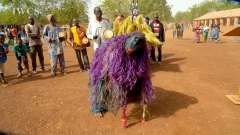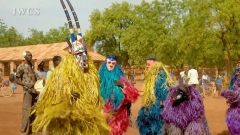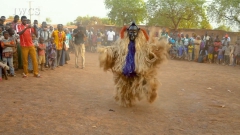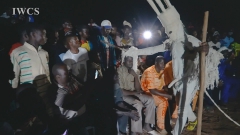Dec 27 2021
Mask in Burkina Faso represent protective spirits that can take animal forms or can appear as strange beings. Originally, masks perform important social and environmental functions, governing human behavior with nature. It is also the best time for initiations which begin at the age of seven and allow access to the world of adultWith masks, all the groups are identical. Masks festivals are an opportunity for repentance and cleaning up all the mistakes made throughout the year.s. Later, those who continue the initiation will be able to wear masks. The masks you see in this video are called Fabric masks or white masks: they represent spirits and only come out at night. They belong to ethnics groups called BOBO and NUNA, a population living in the western part of Burkina Faso. The costume is made from strips of unbleached cotton, woven in the traditional way. The white mask is often attached to a rope held by an unmasked man. These masks mainly participate rituals and ceremonies of their lineages. Some villages have an impressively large cone-shaped mother mask as well as feather masks, which are much rarer and uncommon. Each mask has a precise symbol corresponding to the needs of the village. The manufacture of these masks remain secret. During masks performances, a local beer called DOLO accompanies the musicians, while the women following the procession give some drinks to the masks. In Burkina Faso, masks are vital to the communities they belong to.




